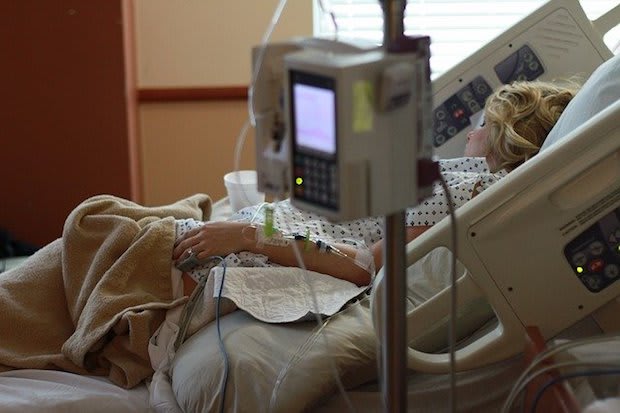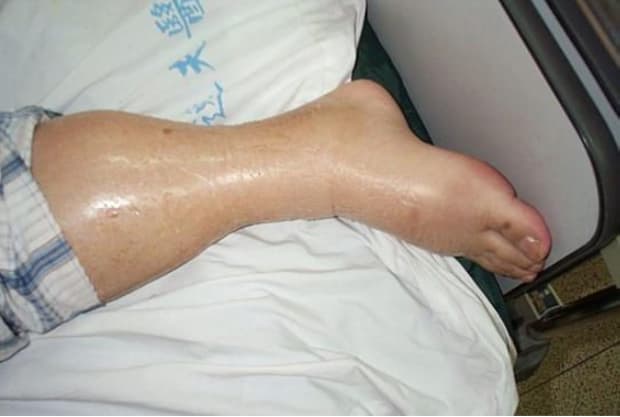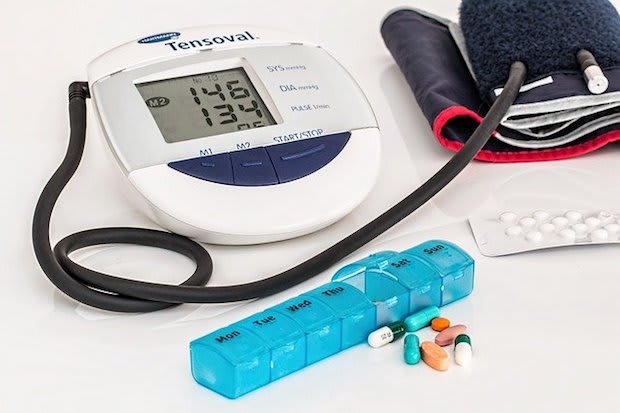Table of Contents
What is Heart Failure?
To many, heart failure may sound like the heart is no longer functional. In actuality, heart failure means that the heart is not pumping as well as it should. The heart's proper functioning is essential in supplying blood to the body, so several complications may occur if it isn't pumping correctly. Heart failure occurs slowly after long periods of overwork.
The body depends on the heart to deliver oxygen and nutrient-rich blood to the body's cells. When these cells do not receive enough oxygen and nutrients, many symptoms may occur, like shortness of breath and coughing. Activities like climbing stairs, walking, and carrying groceries can prove challenging if you suffer from heart failure. [1]
There are nearly five million people in the United States with congestive heart failure. Over 550,000 cases of heart failure are diagnosed each year. [2] Fortunately, doctors may prescribe several medications if you have this condition. These medications can include Lasix (furosemide), Diovan (valsartan), triamterene/HCTZ, Aldactone (spironolactone), or Inderal (propranolol hydrochloride). Heart failure does not happen suddenly and is often a side effect of other chronic conditions. Learn more about these conditions below.
Before diving into conditions that may lead to heart failure, it is important to understand the different types. The type you develop depends on several factors, including prior health disorders, genetics, and lifestyle. There are three main types of heart failure. Left-Sided Heart Failure: The heart's left ventricle is responsible for supplying the heart with its pumping power. It is larger than the other chambers for this reason. Left-sided heart failure can result in the left ventricle not being able to contract normally. It may also mean that the heart cannot properly fill with blood in between beats. Therefore, the body cannot pump out a sufficient amount of blood to the body. Right-Sided Heart Failure: The right side of the heart pumps blood out of the heart and into the lungs to be replenished with oxygen. This type of failure occurs after the left side of the heart fails. Once the right ventricular fails, blood backs up in the veins and causes edema or swelling in the legs, ankles, and abdomen. Congestive Heart Failure: This chronic condition results in a weakened heart. It is essential to seek timely medical care because it can result in death if left untreated. The veins become backed up with blood and lead to congestion in the body's tissues. Because of excess fluid in the body, the kidney cannot dispose of sodium and water, increasing swelling. If fluid collects in the lungs, breathing may become difficult and can lead to serious respiratory distress. [3] High blood pressure (HBP), or hypertension, is one of the major risk factors for heart failure. If you live for a long period with uncontrolled HBP, your heart will have to work harder to keep blood circulating. Lifestyle factors and genetics play a role in the development of high blood pressure. A diet high in salt and fat can lead to increased blood pressure. If you are at risk for hypertension, you should get your blood pressure checked regularly because it is known as the “silent killer.” HBP often does not present symptoms. If you live with HBP for long periods, the heart will also enlarge and grow weaker. Healthy blood pressure should be below 130/80 mm Hg. Blood pressure fluctuates throughout the day, so your doctor will let you know healthy blood pressure for your specific condition. Medications like Diovan (valsartan) and Inderal (propranolol hydrochloride) are commonly prescribed drugs to dilate (open) blood vessels and allow greater blood flow. [4] Coronary artery disease involves the buildup of fatty deposits (atherosclerosis) in the heart's arteries. If the blood vessels are obstructed, blood cannot reach the heart, resulting in severe chest pain conditions. Chest pain may also lead to total obstruction of blood to the heart, causing a heart attack. Atherosclerosis and high blood pressure are often interlinked. Together, these two conditions may result in heart failure over time. Cigarette smoking and high cholesterol levels also cause atherosclerosis. [4] Symptoms of coronary artery disease: Those with type 2 diabetes are two to four times more likely to develop heart failure than those without diabetes. Type 2 diabetes occurs for several reasons, but like HBP and coronary artery disease, many people develop it due to lifestyle choices, including diets high in fat and sugar. [6] If you live with diabetes long-term, you may develop high blood pressure and elevated lipid levels in the blood. Lipids are measured through cholesterol levels. There are healthy cholesterol levels (HDL) as well as unhealthy levels (LDL). Even if blood sugar is well-controlled, type 2 diabetes patients often have higher LDL levels in their systems. Because of this, diabetes patients need to maintain their heart health to prevent severe cardiac problems. [7] If you suffer from a chronic lung disorder, you have an increased risk of developing heart failure in the future. Chronic obstructive pulmonary disease (COPD) can make it difficult to breathe and participate in vigorous activity. COPD and heart failure are linked because the lungs and heart are working harder than normal. Those with COPD cannot empty and fill their lungs with a sufficient amount of oxygen. This can result in left or right-sided heart failure. If you are experiencing heart failure, blood can back up in the veins, leading to edema. Edema or swelling of the body's tissues can build up in the lungs, making it even more difficult to breathe. Both COPD and heart failure often have similar symptoms, like shortness of breath and difficulty climbing stairs. If you already have COPD, you will want to talk to your doctor if you notice increased breathing problems. [8] The content in this article is intended for informational purposes only. This website does not provide medical advice. In all circumstances, you should always seek the advice of your physician and/or other qualified health professionals(s) for drug, medical condition, or treatment advice. The content provided on this website is not a substitute for professional medical advice, diagnosis, or treatment.
Types of Heart Failure

High Blood Pressure
Coronary Artery Disease
Diabetes

Lung Disease
